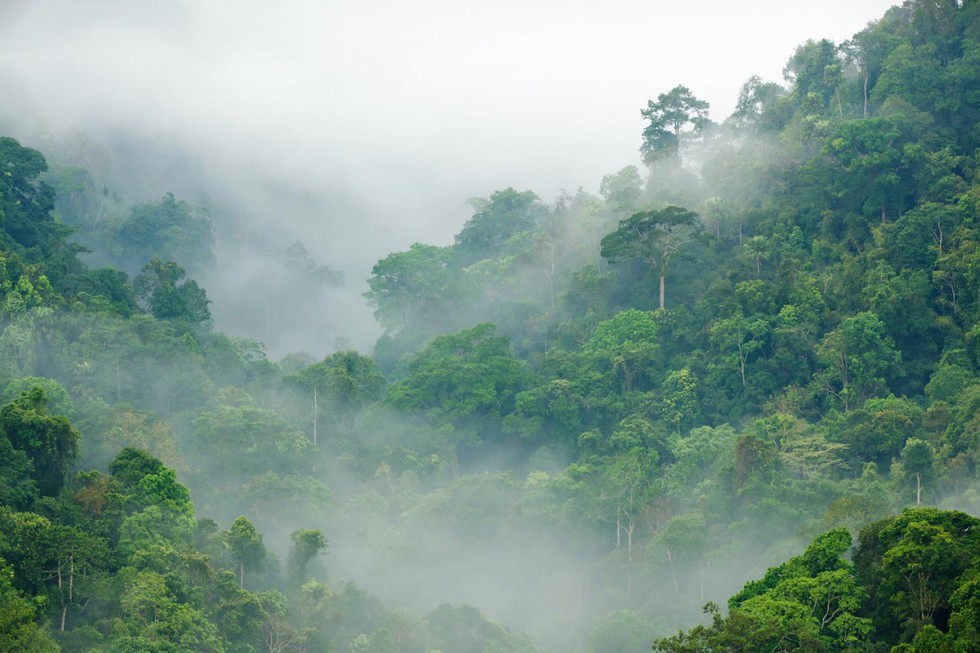A recent study published in Nature Geoscience has revealed that ozone pollution is severely limiting the growth of tropical forests. This reduction is resulting in the loss of nearly 300 million tonnes of carbon each year. The study highlights the adverse effects of air pollution on these ecosystems, which play a crucial role in climate change mitigation.
Role of Tropical Forests in Climate Mitigation
Tropical forests are essential in combating climate change by absorbing carbon dioxide (CO₂) from the atmosphere. However, air pollution, particularly ground-level ozone formed from pollutants released by human activities, negatively affects their ability to absorb carbon.
Findings of the Study
The research shows that ozone pollution is reducing the new annual growth in tropical forests by an average of 5.1%. Certain regions are experiencing even more drastic impacts. According to co-lead author Alexander Cheesman, ozone pollution has prevented the capture of 290 million tonnes of carbon per year since 2000.
Ground-Level Ozone Formation
Ground-level ozone is formed by a reaction between pollutants emitted by human activities such as urbanization, industrialization, and fossil fuel burning, which then interact with sunlight. The study indicates that these factors, along with increased emissions and changing atmospheric chemistry, are responsible for rising ozone levels, which negatively affect forest growth.
Experiments and Computer Models
Researchers conducted experiments to measure the susceptibility of various tropical tree species to ozone pollution. They then used these results in a computer model of global vegetation, showing that the ongoing rise in ozone concentrations could further harm tropical forests in the future.
Impact on Forest Restoration
Ozone pollution also disproportionately affects areas undergoing forest restoration, a critical component in climate change mitigation efforts. Co-lead author Flossie Brown emphasized the importance of air quality in the ability of forests to absorb and store carbon.
Call for Greater Environmental Protection
Professor Stephen Sitch of the University of Exeter noted that reducing ground-level ozone would not only improve air quality but also boost carbon uptake in tropical forests. The study underscores the need for better environmental protection to mitigate the effects of ozone pollution, ensuring healthier forests and contributing to the global fight against climate change.
Conclusion
The study highlights the critical role that air pollution plays in limiting the growth of tropical forests. Reducing ozone pollution through enhanced environmental policies can help restore the health of these ecosystems, enabling them to continue absorbing carbon and playing a pivotal role in mitigating climate change.
Multiple Choice Questions (MCQs):
1. What role do tropical forests play in mitigating climate change?
a) Absorbing ground-level ozone
b) Absorbing carbon dioxide from the atmosphere
c) Releasing oxygen into the atmosphere
d) Increasing industrial productivity
Answer: b) Absorbing carbon dioxide from the atmosphere
2. According to the study, what percentage reduction in yearly growth do tropical forests experience due to ozone pollution?
a) 2.1%
b) 3.5%
c) 5.1%
d) 7.4%
Answer: c) 5.1%
3. What has ozone pollution prevented tropical forests from capturing each year since 2000?
a) 290 million tonnes of carbon
b) 100 million tonnes of oxygen
c) 500 million tonnes of nitrogen
d) 200 million tonnes of methane
Answer: a) 290 million tonnes of carbon
4. How is ground-level ozone formed?
a) By the combination of oxygen and water vapor
b) By the interaction between pollutants from human activities and sunlight
c) By the natural release of gases from plants
d) By volcanic eruptions
Answer: b) By the interaction between pollutants from human activities and sunlight
5. What can be achieved by reducing ground-level ozone, according to Professor Stephen Sitch?
a) Reduced carbon uptake
b) Increased air pollution
c) Improved air quality and enhanced carbon uptake
d) Decreased forest biodiversity
Answer: c) Improved air quality and enhanced carbon uptake
6. What factors have led to an increase in ozone concentrations?
a) Urbanisation, industrialisation, fossil fuel burning, and fires
b) Deforestation and loss of biodiversity
c) Natural disasters like hurricanes
d) Overuse of water resources
Answer: a) Urbanisation, industrialisation, fossil fuel burning, and fires
